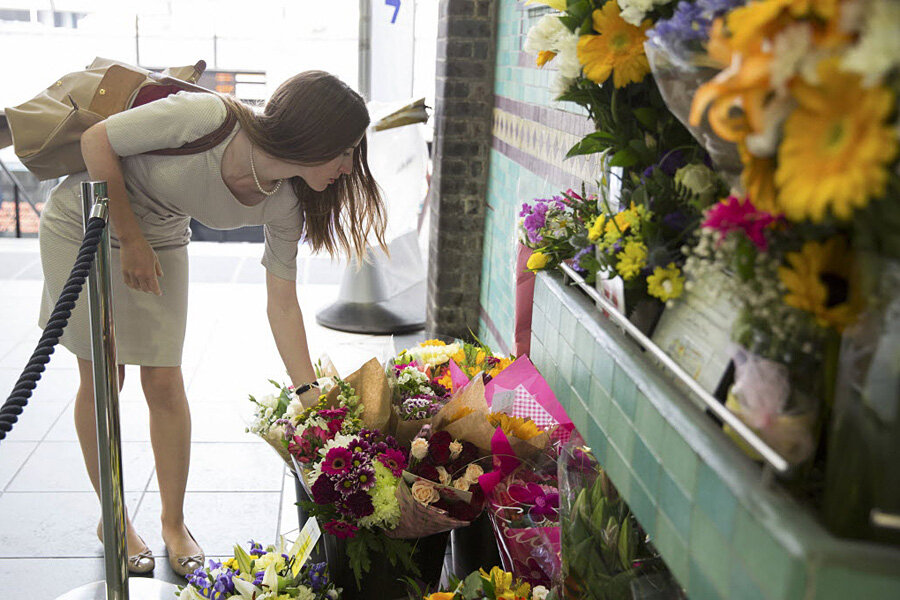The London 7/7 bombings: 10 years later, what's changed?
Loading...
On the morning of July 7, 2005, four explosions rocked the London public transit system – three on subway trains and one on a double-decker bus in Tavistock Square. Fifty-two people were killed and more than 700 were injured.
The terrorist attack, known as the 7/7 bombings, came four years after 9/11 and the beginning of the Global War on Terror – a war that the British had become heavily involved in.
Today, ten years later, Londoners are looking to the future.
Tessa Jowell, a former government minister and aspiring London mayor, delivered a lecture at the the 7/7 Tavistock Square Memorial Trust last week:
“In their wicked madness the bombers presumably thought they were doing something that would be a step towards creating a different city altogether.”
“Perhaps they thought they could set the government against the people, race against race, non-Muslims against Muslims, eroding trust and understanding.”
She continued by saying, “Of course, they failed; they failed utterly.”
But not all agree with Ms. Jowell’s sentiments.
In an opinion piece for the Guardian, Mehdi Hasan says life for British Muslims has not been easy the last ten years:
“I’m sick and tired of this relentless hostility towards Muslims; the negative headlines; the climate of fear and suspicion; the constant collective blaming…I have spent the last decade appearing on TV and radio panels and phone-ins to try and challenge anti-Muslim bigotry on one hand, and violent extremism on the other. How emotionally exhausting, how dispiriting and demoralizing it is to have to publicly affirm your ‘Britishness’ and your ‘moderation’ again and again.”
He may have a point. Especially after an Islamic State militant responsible for beheading captured journalists was identified as a British citizen last year.
In an effort to combat these stereotypes of extremism, mosques across the UK will open their doors to people of all faiths this evening. Attendees will break fast with Muslim community members who are celebrating the holy month of Ramadan.
“The best way to defy the terrorist is to increase our bonds of unity, not to single out any one group of people for blame,” Dr. Shuja Shafi, Secretary General of the Muslim Council of Britain, told the Independent.
And Londoners are beginning to recognize this.
In a city known for its cultural diversity, inhabitants have long become accustomed to living among people of all walks of life.
But critics of multiculturalism argue that the rise in acceptance of different cultural identities has led to extremism.
“The fact is that for too long the doctrine of multiculturalism has led to immigrants establishing completely separate communities in our cities. This has led to honor killings … and the establishment of sharia law in inner-city pockets throughout the UK,” a former Archbishop of Canterbury told the Telegraph.
A new poll by YouGov says that more people think multiculturalism makes the country worse than those who believe it makes the country better.
But as Jowell said in her lecture, “A city that does not create a space for all its people will not be resilient.”








